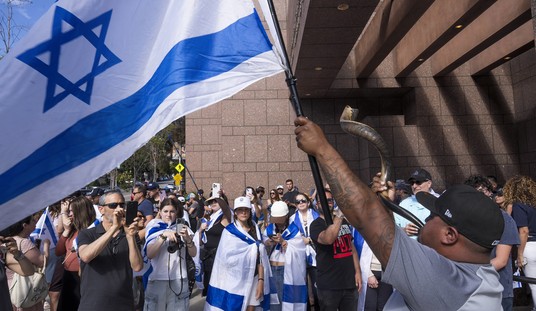The highly-watched Texas primary will take place this upcoming Tuesday, March 1. One of the nominations to be decided that day is the race for Texas attorney general, with incumbent Ken Paxton facing a crowded primary. One of his challengers, Eva Guzman, who recently served on the Texas Supreme Court until she retired last June, not only promoted Critical Race Theory (CRT) ideas, but did so at a summit on December 14, 2016 that she helped create.
The summit was known as Beyond the Bench Law, Justice, and Communities Summit, with highlights posted to the Texas Judicial Branch website. The summit focused in particular on racial bias in the justice system.
An introduction about the summit reveals Justice Guzman's key role. "Supreme Court of Texas Chief Justice Nathan Hecht made it a priority to bring a conversation about justice, race, and bias to Texas. Chief Justice Hecht enlisted Justice Eva Guzman to lead the planning efforts for the Summit," the "Executive Summary" section explains.
Under the "Framework" of the summit are sections on "Equal Justice" and "What is Implicit Bias (or Unconscious Bias)?" That latter section includes a bullet point on how "Intuition can be accurate, but can also be a source of erroneous judgment." It also adds how "A new model called 'intuitive-override' provides a more accurate account of judging and points to several reforms which the civil and criminal justice systems could implement to produce more just and accurate outcomes."
The "Big Ideas" section shows that participants are encouraged to take these ideas on bias beyond the summit. One bullet point directs to "Be part of an organization for social justice," under the "Personal" header.
The header with the most bullet points included, by far, is that under "Training," which even outweighs a header on "Courts," almost doubling it. Many of the bullet points also advocate for mandatory programs and sessions, and to expand them to other fields.
Recommended
Some highlights of those bullet points include:
- Training my staff on bias and how it is impacting them and their work.
- Annual sensitivity training for all staff members.
- Have all institutions go through cultural competency training.
- Implement a discussion on implicit bias with every class I teach. Educate, confront misconceptions, and plant the seed.
- This program should be made mandatory for the Texas state judges and county judges through the Texas Center for the Judiciary.
- Create programs on implicit bias and teach others that if we know our biases, we can change them.
- Implicit racial bias training annually for all professors by me, like I’ve done for CPS research and others.
- Training on Implicit Bias for my city and county law enforcement.
- Provide training for CPS, attorneys, and CASA on how bias affects our judgments.
- Mandatory race relations or cultural awareness training in the professional or stakeholder groups.
- Continue conversations like we had today in order to foster understanding of others’ perspectives and recognize biases. Challenge others in my own community to evaluate their own biases and try to change them by hosting similar events.
- Creating continuing education in building relationships and culture.
While the summit has "the objective of strengthening trust and confidence in the courts" specifically, there are mentions of how the summit hopes to impact children.
One of the "top 5 ideas" mentions an app for children. "Develop a childhood app that helps children to recognize bias at a really young age. They have pattern games. Why not something that changes how they group people, cultures, etc. on the common thread that isn’t an easily seen pattern but has a commonality," it reads.
There are also mentions of children throughout the "Education" header for those "Big Ideas." The section reads:
- Make sure every youngster of every race/ethnicity has access to pre-school education to be ready for 1st grade so they can succeed.
- Overhaul the way we teach civics in the public school system. Many people fall victim to the criminal justice system because they don’t have a basic understanding of how the justice system works.
- Educate young Texans on the benefit differences of opinions and experiences bring to our state.
- Inspire more students to pursue education at a higher level.
While CRT ideas have become major issues in Texas and throughout the country, including and especially when it comes to rallying the base, Bias Response Teams on college and university campuses have also been an issue, for years now.
In December 2018, Speech First filed a lawsuit against the University of Texas over what president and founder Nicole Neily referred to as its "inclusion bureaucracy" as part of a policy on Hate and Bias Incidents and a Campus Climate Response Team (CCRT) at the university. Both were ended as a result of a settlement between the university and Speech First in December 2020.
Paxton was first elected as attorney general in 2014. He is also being challenged by George P. Bush, the nephew of President George W. Bush who is currently the Texas Land Commissioner, as well as Rep. Louie Gohmert, who was first elected to represent Texas' 1st district in 2005.

























Join the conversation as a VIP Member